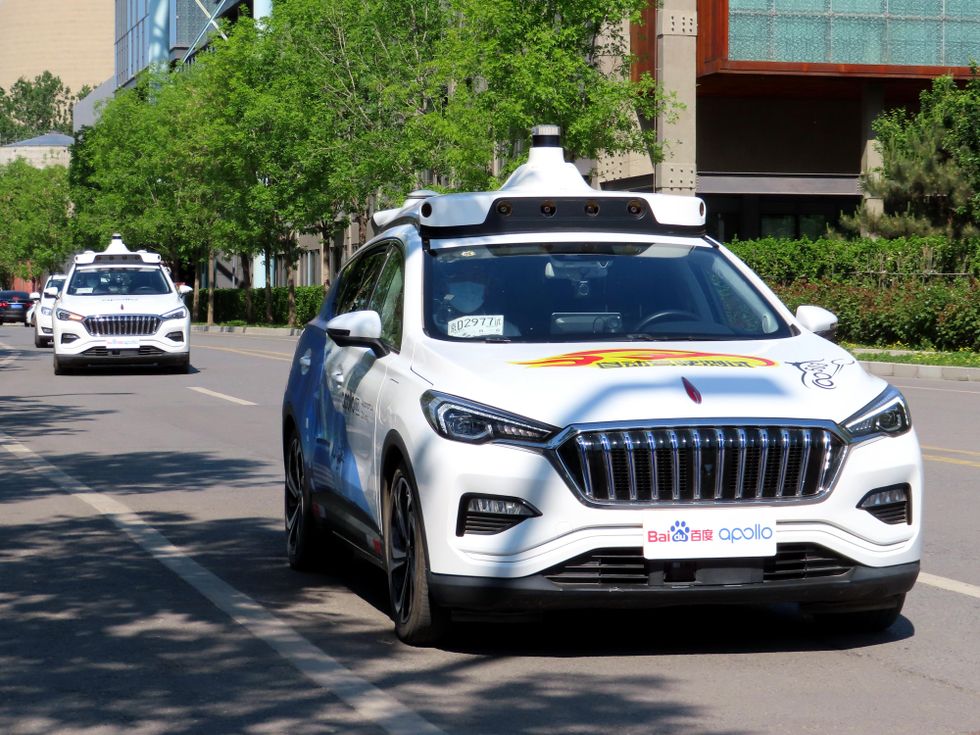Baidu Inc. said this week that it would begin collecting robotaxi fees in portions across Beijing on Thursday, marking a significant step toward expanding its autonomous taxi company. The regulatory clearance to encourage robotaxis in China comes at a time when municipal governments in the United States are moving in the same way. The city of Beijing’s move, on the other hand, bears significant weight. With authorization from China’s capital, firms will be able to charge the public for robotaxi trips for the first time in the nation. It paves the way for the same to be followed in other cities such as Shanghai, Guangzhou, and Shenzhen, according to Wei Dong, Vice President and Chief Security Operation Officer at Baidu’s Intelligent Driving Group. He anticipates that those communities will take action later this year or by early next year.
Baidu’s Apollo unit, which operates the robotaxi company, may already collect payments from customers riding in one of 67 self-driving vehicles in Beijing’s suburban neighborhood of Yizhuang as of Thursday. While the business did not provide specific prices, it did state that rates will be equal to premium level ride-hailing costs offered by apps such as Didi, etc., which may cost twice as much as regular trips. Since October 2020, Baidu has provided free robotaxi trips in Yizhuang. As of Wednesday, the “Luobo Kuaipao” robotaxi application displayed an example charge of 34 yuan (USD 5.31) for a 3-kilometer (1.86-mile) travel from Sam’s Club in Yizhuang to a neighboring subway station.
Didi’s standard express vehicle service charges roughly 14 yuan (USD 2.19) for the same distance. The typical premium level charge for the same journey on Didi is 27 yuan. Thus far, the uniqueness of a free, self-driving cab has attracted several frequent passengers in Yizhuang. According to Wei, more than 20,000 people take at least 10 rides every month. It’s unknown how many people will continue to use the service once they have to pay for it. However, Wei hopes to have about 100 more robotaxi cars in operation per year. Robotaxis is gathering steam with authorities who hold the keys to allowing the public to take autonomous trips. Alphabet’s Waymo and other self-driving cab companies have been testing comparable products in the United States, particularly in California and Arizona. Waymo may charge fees to the public in a section of Phoenix, and its autonomous vehicles do not require a safety driver.
Supported by General Motors Cruise stated earlier this month that it has submitted to the California administration for final certification to become the first robotaxi service in San Francisco to offer completely autonomous paid services. It is unclear when Cruise will be granted permission. As of now, Baidu can only provide public robotaxi trips when accompanied by a human employee. In Beijing, the business has begun testing completely autonomous (driverless) cars. Wei anticipates that, within the next year or so, legislative pressure will likely permit testing of completely autonomous vehicles — those lacking backup drivers – on open streets. The expense of a motorist accounts for around 60% of the customer cost in a ride-sharing facility.
AutoX, an Alibaba-backed automated driving business, announced on Nov. 16 that its completely driverless robotaxis are now operational across China’s biggest single territory – 168 square kilometers (65 square miles) in the Pingshan Area of the Southern Metropolis of Shenzhen. AutoX stated that it began allowing the public to register for robotaxi trips in January. It wasn’t immediately apparent if there was a fee involved. Baidu’s commercial autonomous car permit includes a 60-square-kilometer region, encompassing the town of Yizhuang, which is home to several firms, including JD.com’s headquarters. The area is located around a half-hour ride south of central Beijing.
The Beijing municipal administration has also designated Yizhuang as a testing ground for driverless vehicles, enabling enterprises to test their products there. JD’s unmanned delivery vans and Baidu’s robotaxi automobiles are examples. Baidu CEO Robin Li announced last week that the firm aimed to extend its Apollo Go robotaxi service to 65 locations by 2025, and 100 cities by 2030. This is an increase from the current 5 cities it aims to offer its services in. Additionally, the business said that the next generation of robotaxi cars will be half the price to construct than the previous version.
